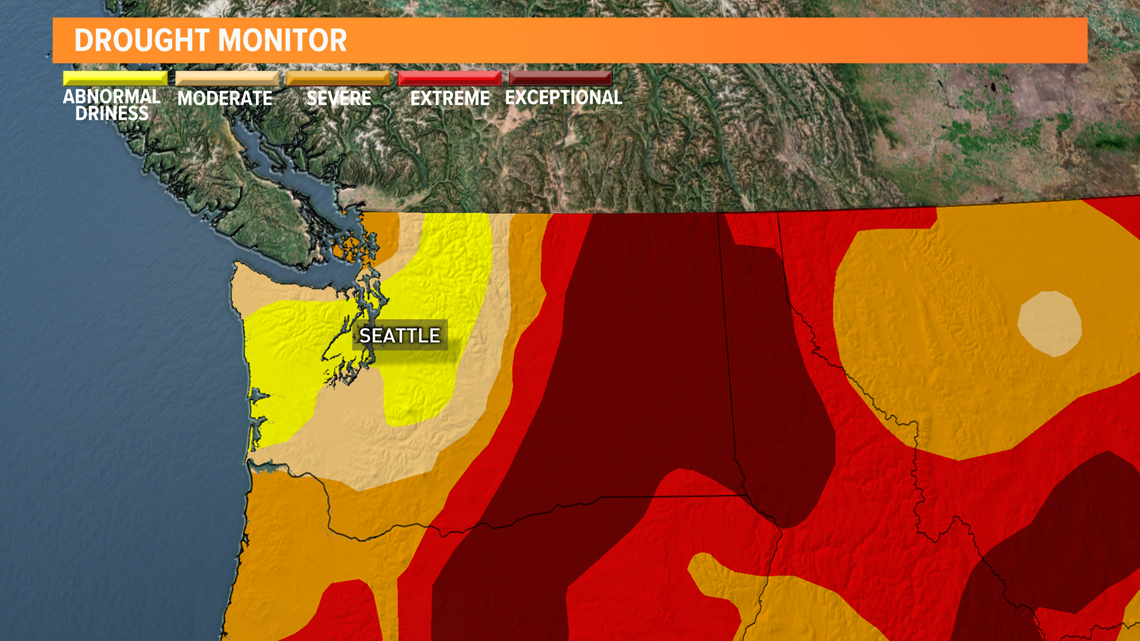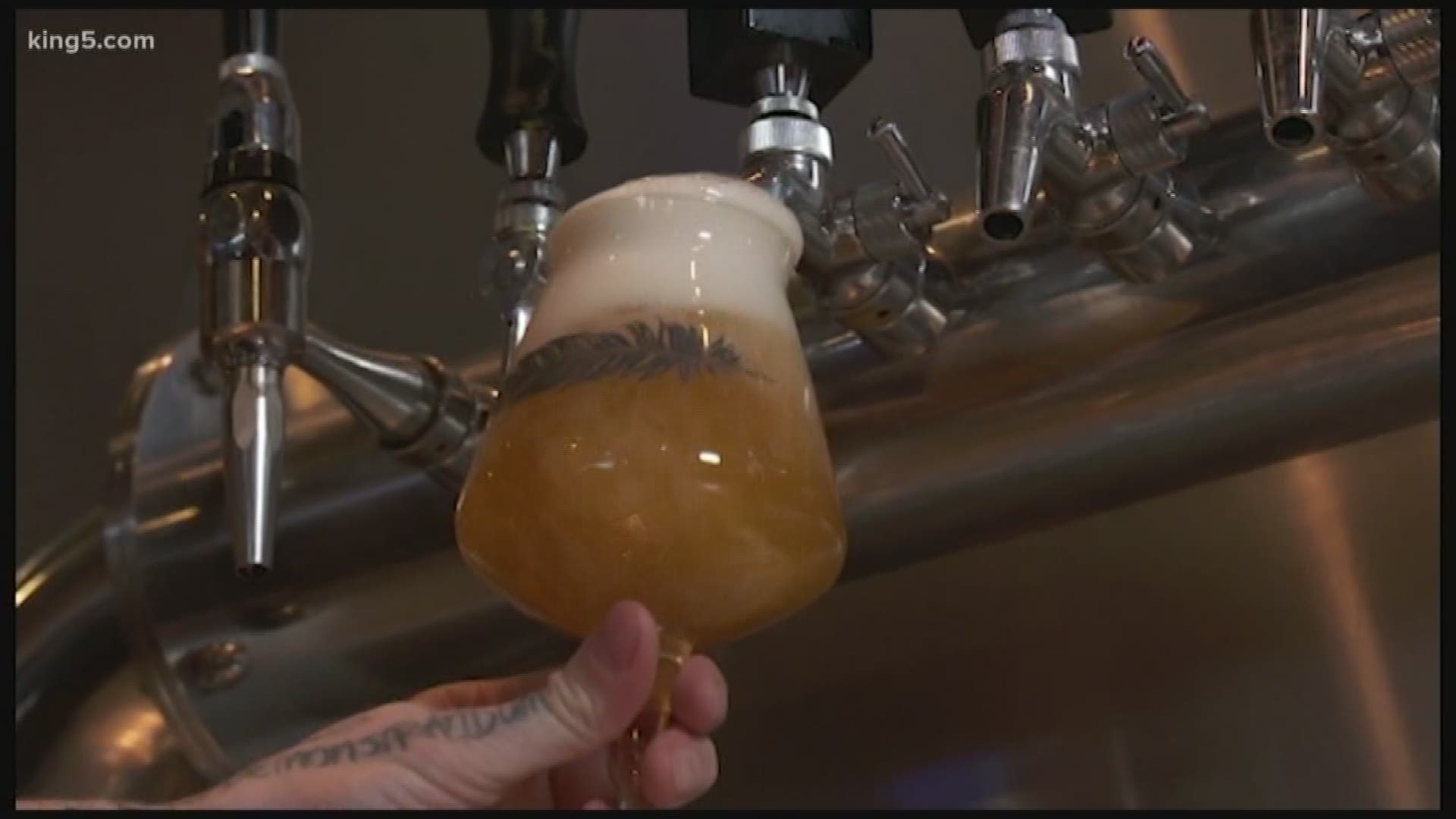Editor’s note: The video above on the impact of climate change on beer originally aired in February 2020.
Climate change could threaten one of your favorite fizzy beverages – beer – and we may be seeing a preview of that future now.
In 2020, KING 5 first reported on how climate change would impact beer. Hops, which are flowers used to flavor beer, require irrigation to grow, but that water could dry up as winters warm and snowmelt decreases.
Yakima Valley, which is the largest producer of hops in the world, would be among the regions impacted.
This summer, Washington got a taste of the Pacific Northwest’s changing climate. The extreme heat experienced in June not only overheated a lot of people, but it triggered a large early season melt of the snowpack and glaciers.
This is compounding the effects of the intense dryness in eastern Washington. Already most of Washington east of the Cascades is suffering through extreme to exceptional drought.


Over the next few decades, scientists say other impacts from climate change will include warmer winters, which could decrease the snowpack that provides water in the summer to farmers, including hops producers. University of Washington researchers estimate snowpack could drop by 29% in our current decade, 44% in the 2040s and 65% in the 2080s.
Anticipating these changes today and in the future, hops producers are already developing growing and processing methods that use significantly less water, so the beer you drink today will still be around and affordable tomorrow.
Tess Hawkins Wagner and Jordan Steele contributed to this report.

